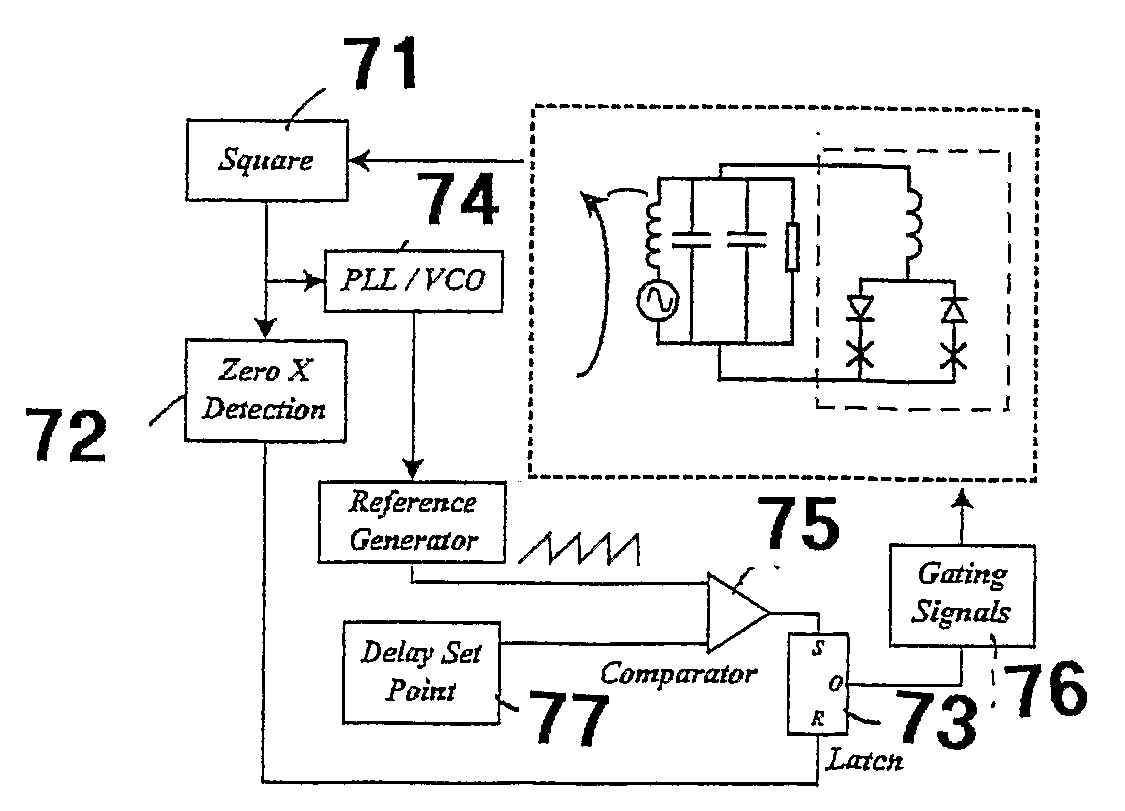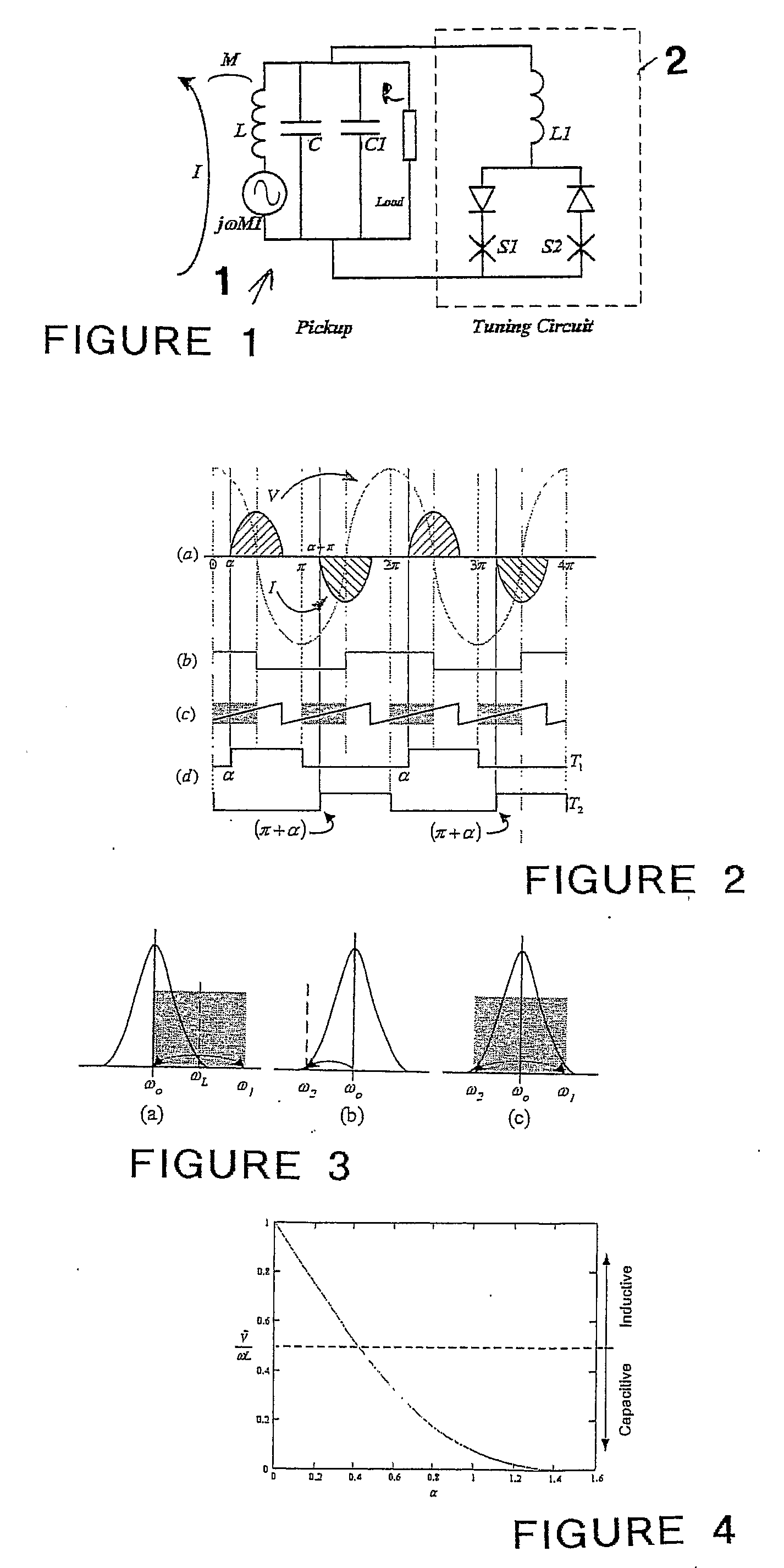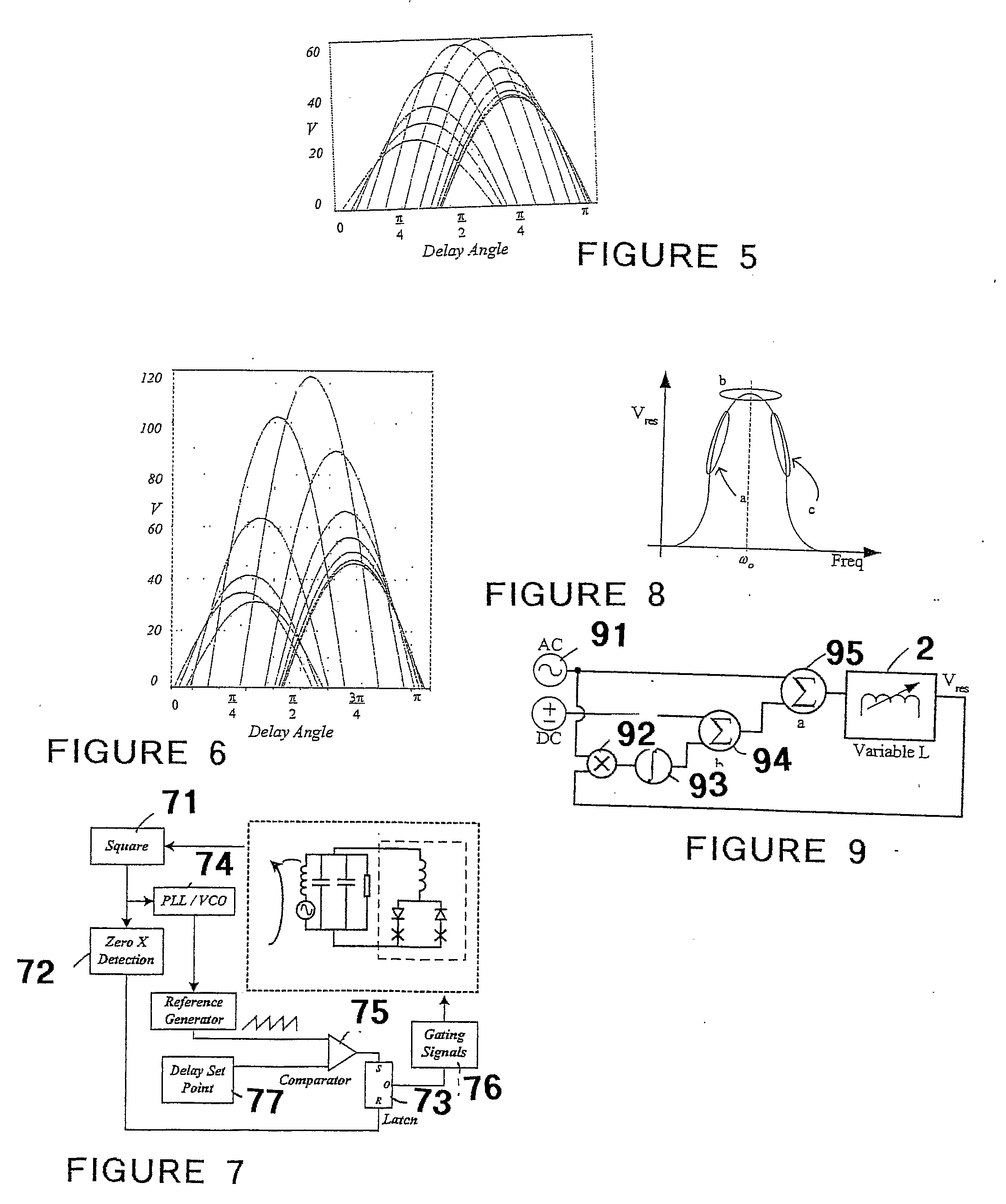Tuning methods and apparatus for inductively coupled power transfer (ICPT) systems
a technology of inductive coupling and power transfer, applied in the direction of discontinuous tuning by electric means, transmission, automatic control of pulses, etc., can solve the problems of adding costs and complexity to the manufacturing process, inability to perform traditional methods, and difficulty in staying at the resonant frequency irrespective of q
- Summary
- Abstract
- Description
- Claims
- Application Information
AI Technical Summary
Benefits of technology
Problems solved by technology
Method used
Image
Examples
Embodiment Construction
[0050]Referring to FIG. 1, a pick-up for an ICPT system is shown generally referenced 1. The pick-up includes a pick-up coil L and a tuning capacitor C across which a load R is in practice connected. The circuit includes a tuning circuit 2 which includes an inductance L1 that can be selectively switched across the pick-up coil and tuning capacitor using switches S1 and S2. A further capacitor, being a compensating capacitor, C1 is also provided. Under normal operating conditions the current through L1 is balanced by the current through C1, and the circuit has no effect on the pick-up tuning. However, if the current through L1 is increased, then the pick-up tunes to a higher frequency. If the current through L1 is reduced, then the pick-up tunes to a lower frequency. Therefore, in operation the resonance in the pick-up is maintained by varying the current in the tuning inductance L1. Those skilled in the art to which the invention relates will appreciate that a variable tuning capaci...
PUM
 Login to View More
Login to View More Abstract
Description
Claims
Application Information
 Login to View More
Login to View More - R&D
- Intellectual Property
- Life Sciences
- Materials
- Tech Scout
- Unparalleled Data Quality
- Higher Quality Content
- 60% Fewer Hallucinations
Browse by: Latest US Patents, China's latest patents, Technical Efficacy Thesaurus, Application Domain, Technology Topic, Popular Technical Reports.
© 2025 PatSnap. All rights reserved.Legal|Privacy policy|Modern Slavery Act Transparency Statement|Sitemap|About US| Contact US: help@patsnap.com



